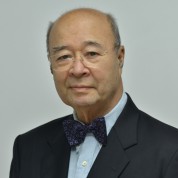
Mechai Viravaidya
Chairman
Population and Community Development Association (PDA)
After serving as an economist at the National Economic and Social Development Board (NESDB) for eight years, Mechai Viravaidya founded the Population and Community Development Association (PDA) in 1974 to address the unsustainable population growth in Thailand of 7 children per family and an annual growth rate of over 3 percent. A variety of innovative methods were applied in conjunction with mobilizing and training a network of 320,000 rural school teachers and 12,000 village community members to make contraceptives available throughout rural Thailand. This resulted in Thai families having fewer than two children and a more sustainable annual population growth rate of 0.5 percent today.
When HIV/AIDS first appeared in Thailand in the late 1980s, similar approaches were used to initiate a major prevention program. According to UNAIDS, this endeavour achieved a 90 percent decline in new infections and, according to the World Bank, an estimated 7.7 million lives were saved during the period of 1991-2012.
While acting as Chairman of PDA, Khun Mechai was made a member of the Senate during 1987-1991, 1996-2000, and 2000-2006. He was also appointed to such key positions as Thailand’s Cabinet spokesman, Deputy Minister of Industry, Minister of the Office of the Prime Minister, and Chairman of several of Thailand’s largest government-owned enterprises including Krung Thai Bank, The Telephone Organization of Thailand (TOT), and PTT-EP. In addition to these responsibilities, he also served as a Research Associate at Columbia University, as a Visiting Scholar at Harvard University and as a Council Member at several Thai Universities. In 2014, the National Reform Assembly elected him as a member of the Constitution Drafting Committee.
Following his success at promoting family planning and HIV prevention, Khun Mechai has aggressively approached the problem of rural poverty by empowering the poor through the Village Development Partnership, to build sustainable entrepreneurial capacity, community empowerment, income generating activities and environmental protection at the village level. This project, which is a partnership between a rural village and a sponsoring company, is marked by extensive community involvement as beneficiaries, planners, managers, and most importantly – as partners and leaders.
In 2008, he established the Mechai Bamboo School in Buriram province, Northeast Thailand, to re-engineer rural education and to enable the school to be a life-long learning center as well as a hub to improve the quality of life of all community members. The Bamboo School aims to foster a new generation of rural youth who are honest and innovative social entrepreneurs and community development leaders. Today, with the help of the private sector, two hundred and forty small rural schools have begun to adopt this concept and have begun to take on a greater role in their surrounding communities.
For his efforts in various development and educational endeavours, Khun Mechai Mechai has been awarded numerous awards, recognition, and honorary doctoral degrees, including those from Melbourne, Monash Universities in Australia and The University of Warwick in England. He was presented with the Ramon Magsaysay Award for Public Service (1994), recognized as one of Asiaweek’s “20 Great Asians” (1995), the United Nations Population Award (1997), one of TIME Magazine’s “Asian Heroes” (2006), the Bill and Melinda Gates Award for Global Health (2007), the Skoll Award for Social Entrepreneurship (2008). More recently, he was honoured with the Prince Mahidol Award for Public Health (2009) and was selected as the first recipient of the Geelong Grammar School Medal for Service to Society in Australia (2014).
Khun Mechai was educated at Geelong Grammar School, Victoria and the University of Melbourne. He was born in 1941 in Bangkok, Thailand, and is married to Thanpuying Putrie. They have one daughter, Sujima, and two grandchildren.
31
Jan
PS 1.4
07.00 - 09.00 (BKK)

